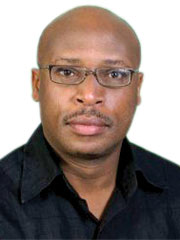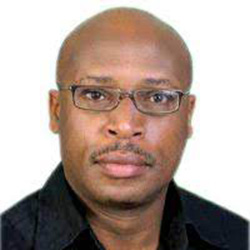THERE IS no gainsaying the World Cup is captivating. Thus, away from Africa’s usual concerns that include the senseless violence – such as the shocking killings we have just witnessed in Mpeketoni in Lamu, Kenya – the games in Brazil are offering some respite.


THERE IS no gainsaying the World Cup is captivating. Thus, away from Africa’s usual concerns that include the senseless violence – such as the shocking killings we have just witnessed in Mpeketoni in Lamu, Kenya – the games in Brazil are offering some respite.
Africa is being represented by Algeria, Cameroon, Ghana, Ivory Coast and Nigeria.
And even though is unlikely any of these countries will take the Cup, many African fans are sleeping late following the games live on TV or radio.
By the same token, other football enthusiasts, as has been the case every season when the global showdown of the ‘Beautiful Game’ is underway, are frowning at Africa’s dismal performance.
Why is Africa not likely to take the Cup any time soon?
Several theories have been put forward, among which is Africa’s unbalanced representation at the games, compared to Europe or Latin America.
From one team in 1970, five teams are currently representing Africa – out of a total of 32 teams – at the World Cup.
The only exception was the 2010 World Cup in South Africa when six teams represented the continent; the reason being it was staged in South Africa which, as a rule, had to participate as the host country. This made it 18 per cent representation.
Europe is represented by 13 teams, or 40 per cent representation at the World Cup. It has taken the Cup ten times (Italy 4 times, Germany 3, and England, France and Spain one time each).
Statistically speaking, would it have made a difference for Africa to have won even one World Cup if it was more equitably represented given the 54 countries on the continent, which almost equates to Europe’s 50?
Perhaps not, given the high stakes at games of such caliber, and that winning takes more than mere numerical representation of teams.
There could be other factors, such as how Algeria was eliminated in 1982.
In its group, Algeria had a chance to advance to the next stage after beating West Germany and Chile, unless West Germany beat Austria 1-0 or was beaten 2-0.
Commentators argue that when the two teams realised how the score would benefit them, they colluded and "both sides stopped competing”. The result was that Algeria was eliminated, leading to outrage from the media and fans, amid calls for replay of the game.
Many believe it is because of this incident that the world football body, FIFA, ruled that the last two pairs of group games must henceforth be played at the same time to avoid such "fixing”.
But we have a constellation of African stars playing in Europe: Yaya Toure, Cheick Tiote, Didier Drogba, among others. Why don’t they "do” it for their home countries, if not for Africa?
Some sports psychologists have suggested that the high public expectations for these players to deliver often result in them underperforming because of "escapist self regulation strategy”.
This self regulation has been described as the attempt to calm yourself down or act in your best interest. But when one avoids or escapes the reality of the situation, this compromises usual response leading to under-performance.
The link has been made between public status and performance in high pressure sport tasks such as penalty shootouts.
The truth, however, is that there are any number of factors and variables as to why some of the worst losers may not win the World Cup soon.
An example is when the world renowned British theoretical physicist and cosmologist Stephen Hawking made the news, when he came up with a formula on how England could win this year’s World Cup.
His formulae took into consideration conditions ranging from the environment to politics, of which there were many variables.
He is reported to have concluded that soccer is more "hugely complicated” than quantum physics, which is more straightforward.
That said, and with the universality of soccer – its triumphs and disappointments – Africa should suffer no crisis of expectations at the World Cup.
The writer is a commentator on local regional issues
Twitter: @gituram


